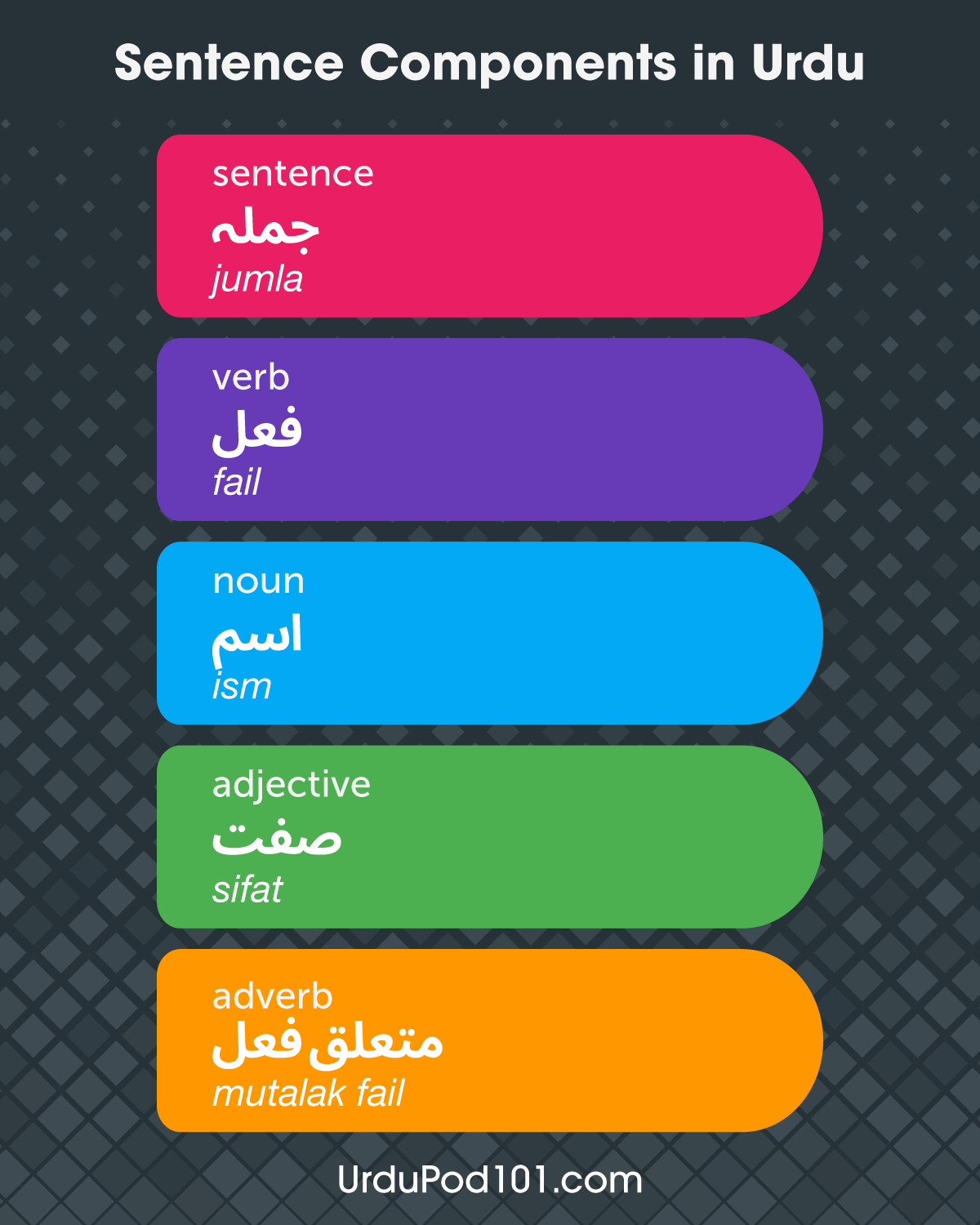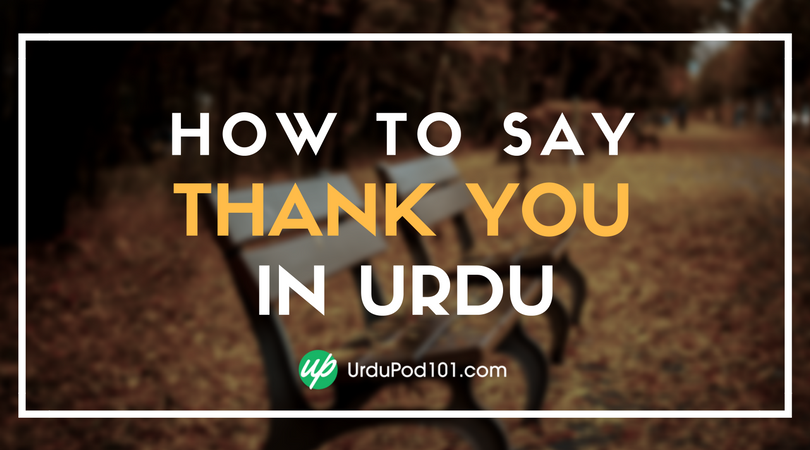
Do you think that the cut-and-dry grammar and complex syntaxes are the only important aspects of learning a language? If so, let us introduce you to an equally effective linguistic approach that will help you start using Urdu faster: learning the most common Urdu language sentence structures and patterns.
Without undermining the due significance of traditional language-learning methods, it’s important to be flexible and tailor your studies to your personal needs. This is a small step that can have huge results!
As a smart Urdu student, think outside the box and learn some widely used sentence patterns in English and Urdu for everyday communications. Once you’ve learned these well, you can even start improvising to craft your own unique sentences per situation.
This article will inform you of the ten most productive and easy Urdu sentence patterns that will help you articulate your thoughts into crisp, comprehensible Urdu sentences. Remember that it’s not a shortcut; it’s the smart cut, guaranteeing a better understanding of Urdu sentence formation with pleasing results.
Let’s begin.
 Table of Contents
Table of Contents
- Linking Two Nouns: A is B
- Using Adjectives to Describe: A is [Adjective]
- Expressing “Want”: I Want (to)…
- Expressing “Need”: I Need (to)… / I Have to …
- Expressing “Like”: I Like (to)…
- Politely Asking Someone to Do Something: Please…
- Asking for Permission: May I…? / Can I…?
- Asking for Information About Something: What is…?
- Asking About Time: When is…?
- Asking About Location or Position: Where is…?
- Conclusion
1. Linking Two Nouns: A is B

We’ll start with a simple Urdu sentence pattern for describing a noun by linking it to another noun. Before you look at the examples below, we recommend that you study our articles about Urdu Nouns and Urdu Verbs so you can better understand how they work. In particular, you should familiarize yourself with the verb “to be” in Urdu.
- عمران میرا بھائی ہے
Imran mera bhai hai.
“Imran is my brother.”
- ہاکی ہمارا قومی کھیل ہے
Hockey hamara qomi khel hai.
“Hockey is our national sport.”
- لاہور میرا شہر ہے
Lahore mera shehar hai.
“Lahore is my city.”
2. Using Adjectives to Describe: A is [Adjective]
Now that you know how to use nouns in Urdu sentences, it’s pertinent to step forward and learn how to describe nouns using Urdu adjectives.
- محمد ایک سچا انسان ہے
Muhammad aik sacha insaan hai.
“Muhammad is an honest man.”
- یہ ایک اہم موقع ہے
Yeh aik aham moqa hai.
“It is an important opportunity.”
- یہ کتاب بالکل نئی ہے
Yeh kitab bilkul naiye hai.
“This is a brand-new book.”
UrduPod101.com has a page about high-frequency Urdu adjectives that you should familiarize yourself with. Check it out!
3. Expressing “Want”: I Want (to)…

Expressing one’s wishes or desires is an extremely important matter in any language. In Urdu, we use the verb چاہنا (chah-na) to express any such feelings. Below are some examples of how to use a proper Urdu sentence pattern with this verb.
- میں ایک کامیاب بزنس مین بننا چاہتا ہوں
Mei aik kamyab businessman ban-na chahta hun.
“I want to become a successful businessman.”
- میں مزید پڑھنا چاہتا ہوں
Mei mazeed parhna chahta hun.
“I want to study further.”
- تم سب سے آگے نکلنا چاہتے ہو
Tum sab say aagay nikalna chahtay ho.
“You want to lead everyone.”
To learn more about how to properly conjugate Urdu verbs, including this one, check out our article about Urdu Conjugations.
4. Expressing “Need”: I Need (to)… / I Have to …

If you want something, it may underlie a luxury; if you need something, it signifies a necessity. Needs are more important than wants, so let’s learn the best Urdu sentence structure for expressing needs.
ضرورت (zaroorat) is the word we use to convey needs in Urdu.
Below, you’ll find some sentences in Urdu to emphasize or express your needs. Be sure to focus on the various changes undergone by this word.
- میرا آج واپس لوٹنا ضروری ہے
Mera aaj wapis lotna zaroori hai.
“I have to return today, definitely.”
- تمھیں یہ امتحان ہر صورت میں ضرور پاس کرنا ہے
Tumhain yeh imtihan her surat mein zaroor pass karna hai.
“You need to pass this exam at any cost.”
- ہمیں اپنا رویہ بدلنے کی ضرورت ہے
Hamein apna rawaiyya badalnay ki zaroorat hai.
“We need to change our attitude.”
5. Expressing “Like”: I Like (to)…

Now, let’s aim at learning how to express our likes in Urdu. پسند کرنا (pasand karna) is the true translation of “to like” in Urdu. پیار کرنا (pyaar karna) is another verb used to express love, as it’s translated as “to love” in English. However, پسند کرنا also has an implied meaning of loving someone when used in a particular context.
- مجھے سینما جانا پسند ہے
Mujhay cinema jana pasand hai.
“I like to go to the cinema.”
- میں پڑھانا پسند کرتا ہوں
Mei parhana pasand karta hun.
“I like to teach.”
- مجھے ٹرین کا سفر اچھا لگتا ہے
Mujhay train ka safar acha lagta hai.
“I like to travel by train.”
6. Politely Asking Someone to Do Something: Please…
Courtesy is among the seven pillars of effective communication in Pakistani society, and around the world. In Pakistan, people like to give and receive respect while communicating with each other. In this section of the article, we’ll show you an Urdu sentence pattern used to ask for something (or for a favor).
- مہربانی فرما کر میری بات سنیں
Meharbani farma kar meri baat sunein.
“Please, listen to me.”
- براہ مہربانی اپنا لہجہ درست کریں
Barah-e-meharbani apna lehja durust karein.
“Please, mind your tone.”
- ازراہ کرم میرے پیسے واپس کر دیں
Azrah-e-karam meray paisay wapis kar dein.
“Please, return my money.”

7. Asking for Permission: May I…? / Can I…?
In every culture, asking permission is an essential rule of etiquette. In Urdu, we use modal verbs to ask certain questions and seek permission, along with many other functions. Below, we’ll show you how to incorporate modal verbs in your sentences by following a particular Urdu sentence pattern.
- کیا میں اندرآسکتا ہوں؟
Kia mei ander aa sakta hun?
“May I come in?”
- کیا میں آپ کے گھر آ سکتا ہوں؟
Kia mei aap kay ghar aa sakta hun.
“May I visit your house?”
- کیا میں آپ کا تھوڑا سا وقت لے سکتا ہوں؟
Kia mei aap ka thora sa waqt lay sakta hun.
“Can I take a little bit of your time?”

8. Asking for Information About Something: What is…?
When visiting a foreign country, you’re probably going to have some questions for the natives. This makes learning the Urdu sentence patterns for asking questions essential for any Urdu learner.
کیا ہے (kia hai) is a basic phrase used to ask a question in Urdu. In English, it’s translated as “what is.” You can always place کیا ہے at the end of a sentence, preceded by the relevant words. Let’s see some examples:
- آپ کا ارادہ کیا ہے؟
Aap ka irada kia hai?
“What is your plan?”
- آپ کا سوال کیا ہے؟
Aap ka sawal kia hai?
“What is your question?”
- آپ کے سکول کا نام کیا ہے؟
Aap kay school ka nam kia hai.
“What is the name of your school?”
9. Asking About Time: When is…?
Now it’s time to learn “when is,” or کب ہے (kab hai). You can always place کب ہے at the end of a sentence. Let’s see some examples:
- آپ کی شادی کی اینیورسری کب ہے؟
Aap ki shadi ki anniversary kab hai?
“When is your marriage anniversary?”
- دونوں ٹیموں کے مابین اگلا میچ کب ہے؟
Dono teemo kay maabain agla match kab hai?
“When will the next match be played between both teams?”
- آپ کی منگنی کب ہو رہی ہے؟
Aap ki mangni kab ho rahi hai?
“When is your engagement taking place?”

10. Asking About Location or Position: Where is…?
Asking about someone’s location is another important inquiry. کہاں ہے (kahan is) is the expression used in Urdu to do this. Here are examples of how to use this phrase in an Urdu sentence pattern:
- لاہور میں یادگار پاکستان کہاں ہے؟
Lahore mein Yaadgar-e-Pakistan kahan hai?
“Where is Yaadgar-e-Pakistan located in Lahore?”
- آپ کا کالج کہاں واقع ہے؟
Aap ka college kahan waqia hai?
“Where is your college situated?”
- ہماری ذاتی گاڑی کہاں ہے؟
Hamari zati gari kahan hai?
“Where is our personal vehicle?”
11. Conclusion
In this article, you learned the basics of how to form sentences in Urdu by focusing on basic Urdu sentence patterns. We recommend that you choose an Urdu sentence pattern to practice, and work until you master it before moving on to another one.
Do you have any questions about a sentence pattern that you want to discuss with us? Are you better prepared to interact with native Urdu-speakers with this handful of language material you learned today with UrduPod101.com?
Be sure to keep exploring UrduPod101, a rich repository of Urdu language-learning resources for students at every level.
Very Happy Urdu Learning!










